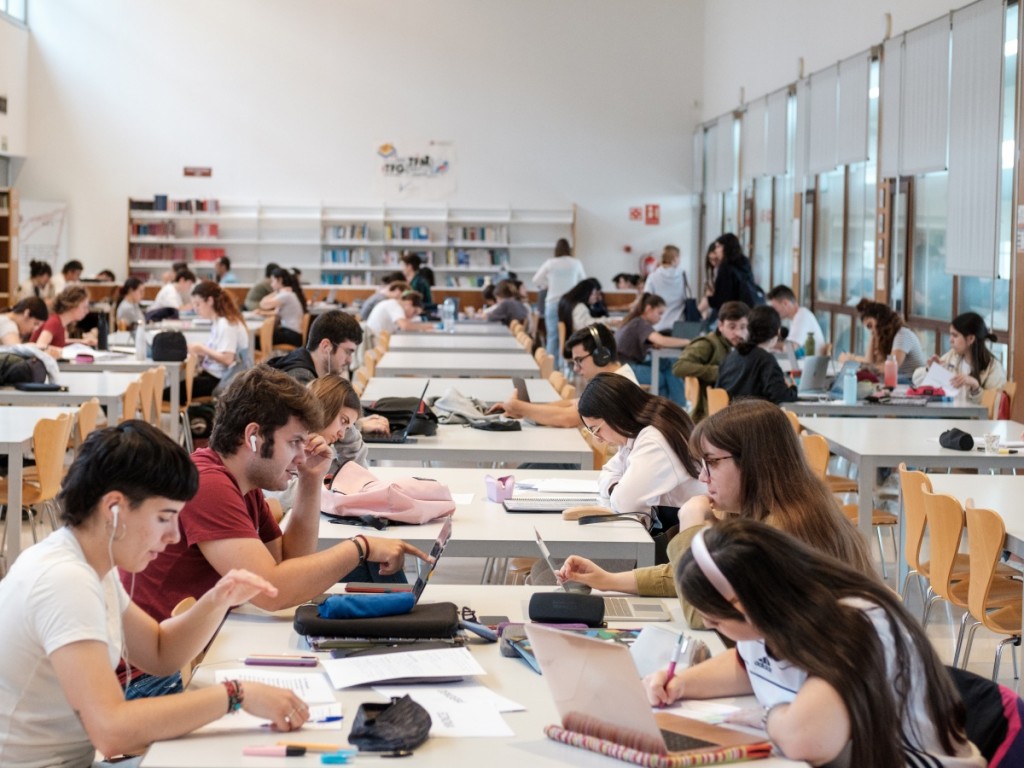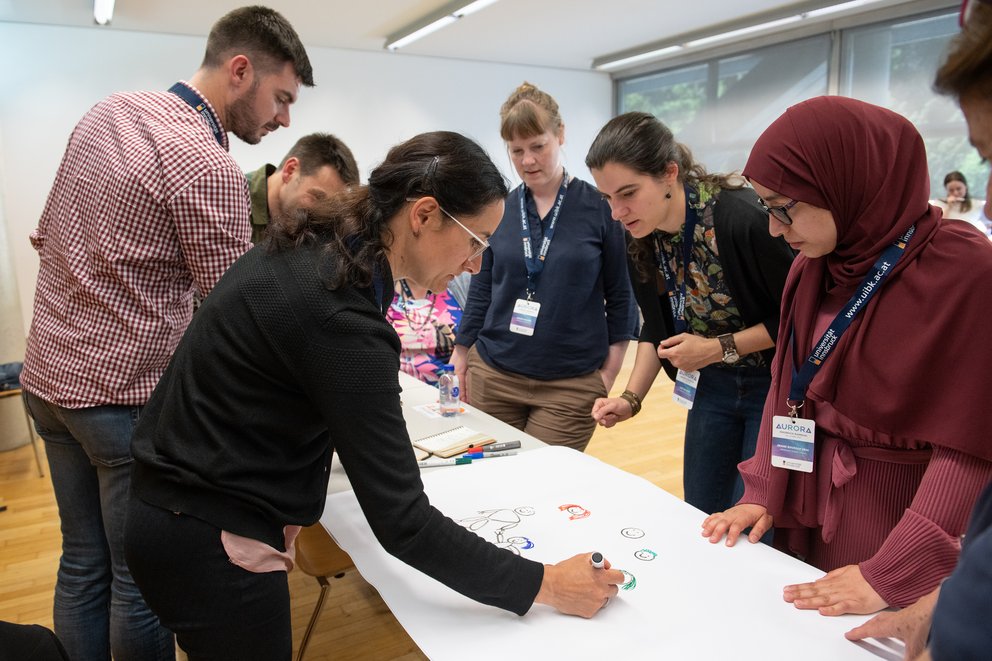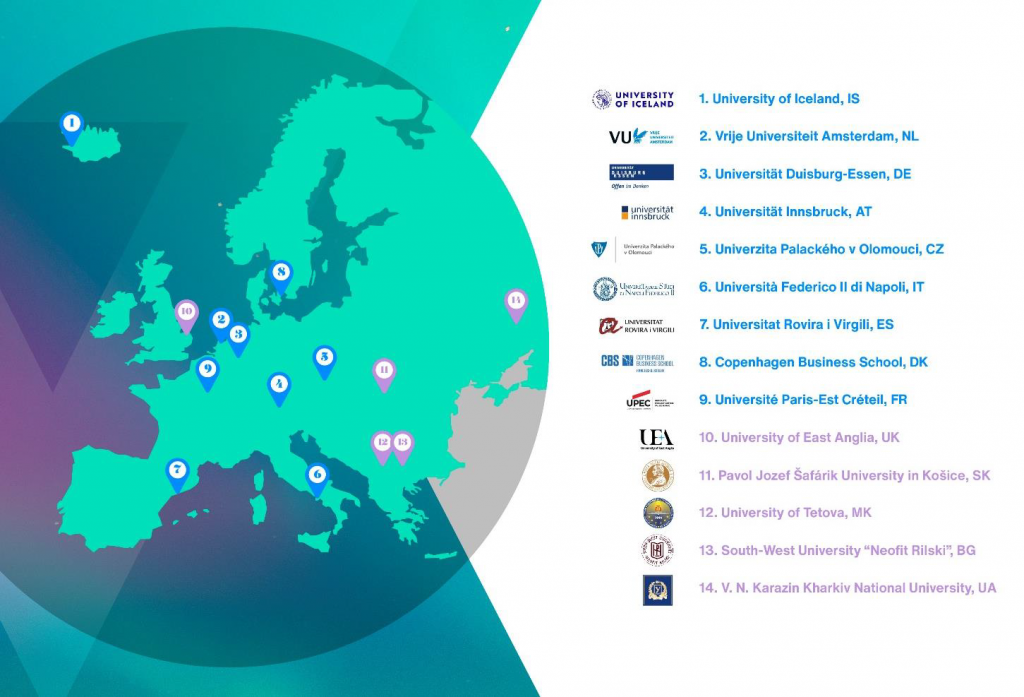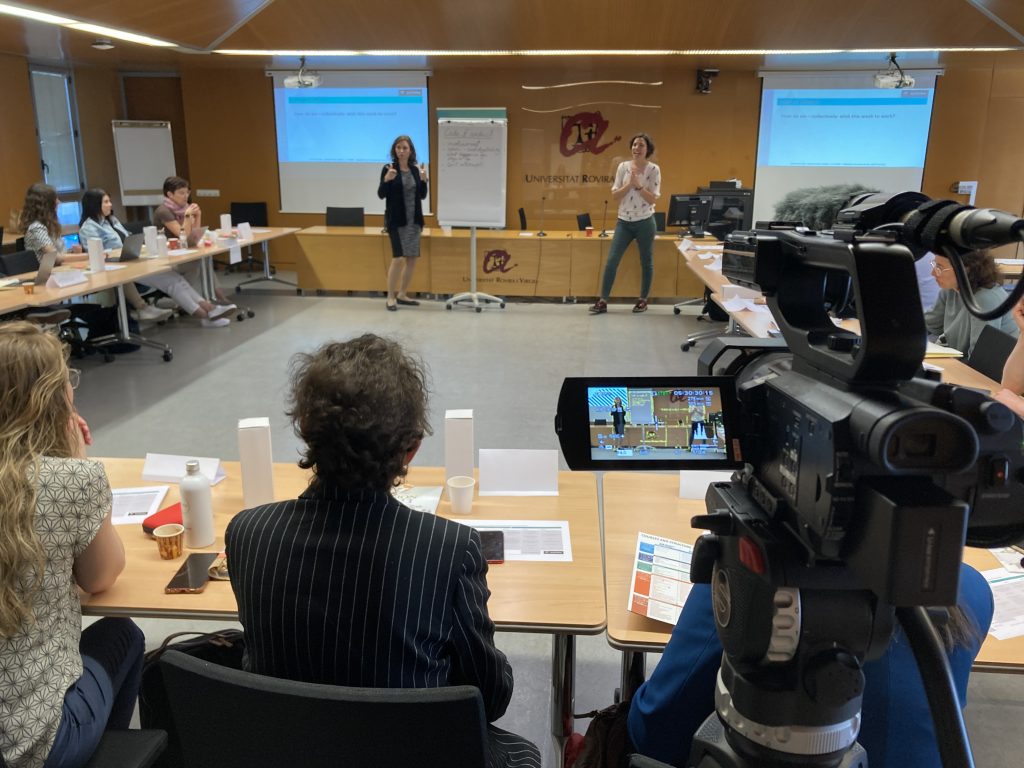04/07/2023
The Aurora European Universities Alliance obtains funding for its continuity
Students and staff of the Universitat Rovira i Virgili are part of the nine-country multicampus thanks to the European Universities initiative promoted by the European Commission to improve the quality of higher education. The URV coordinates the team that promotes mobility and internationalisation at home

Students and staff of the Universitat Rovira i Virgili are part of the nine-country multicampus thanks to the European Universities initiative promoted by the European Commission to improve the quality of higher education. The URV coordinates the team that promotes mobility and internationalisation at home
In 2019, the European Commission (EC) launched the “European Universities” programme, which finances alliances between European universities to function as a single inter-university campus with an integrated strategy in teaching and a close link with research and social innovation. The initiative improves the quality and international competitiveness of universities and allows students to obtain a degree by combining study programmes from several European Union countries. The Universitat Rovira i Virgili (URV) has been part of Aurora, one of the European university alliances funded by the Erasmus+ programme since 2020.
On Monday, 3 July, it was announced that Aurora 2030, the second phase of the project, is being awarded a second round of funding. It is led by the University of Iceland and will receive 14.4 million euros for the next four years. The URV will manage part of the budget (1.22 million euros) and heads the work team in charge of promoting student and staff mobility and exchanges. The aim of this part of the project is to integrate internationalisation as a means of achieving higher quality education and research and, at the same time, to facilitate equal access to internationalisation.
From pilot phase to institutionalisation
As a member of this European University programme, the URV university community is, in turn, part of a larger community, consisting of nearly 260,000 students and 30,000 members of the research, technical and service staff of nine universities.
In the pilot phase, the Aurora alliance has developed joint courses, study and research visits, exchanges of good practices in teaching and research, access to shared scientific infrastructure, a centre of expertise and resources on interdisciplinary skills, an international training programme, a service-learning resource pack, and a communal online university campus.

The European Commission has favourably evaluated the second phase of the project, which will begin in October. Based on the work done so far, the universities that make up this European multi-campus will focus on four areas to drive social transformation through students, teaching, research, technical and service staff and the wider community The aims are:
- In teaching, to improve the educational experience and focus on social needs, while reinforcing students’ skills and emphasizing internationalisation practices to prepare them for a globally diverse and integrated world.
- In research and innovation, as a consortium of universities focused on research and with some influence over society, to promote diversity and inclusion with opportunities for academic staff from disadvantaged backgrounds.
- In terms of social commitment, to strengthen collaboration with partners in Europe and beyond European borders to reduce differences in research and focus on dissemination initiatives in Central and Eastern Europe.
- To keep sustainability at the centre of Aurora’s mission, and to promote sustainable practices on campuses and reduce the carbon footprint.
The ultimate goal is to consolidate Aurora as an inter-university campus with teams that generate knowledge that has an impact on the European Higher Education Area and beyond its borders, with the commitment to offer joint courses and education programmes, dozens of courses related to the Sustainable Development Goals, physical, virtual and mixed mobility programmes for 1,600 students, 360 researchers and 360 lecturers.
A multicampus consisting of nine universities and five associates

Aurora 2030 will be working with nine partner universities:
- University of Iceland (Iceland)
- Vrije Universiteit Amsterdam (Netherlands)
- University of Innsbruck (Austria)
- University of Duisburg-Essen (Germany)
- Copenhagen Business School (Denmark)
- Palacký University Olomouc (Czech Republic)
- Rovira i Virgili University (Spain)
- Université Paris-Est Créteil (France)
- University of Napoli Federico II (Italy)
And it also has 7 academic and non-academic partners who take part in project-specific areas: University of East Anglia, South-West University “Neofit Rilski”, Pavol Jozef Šafárik University in Košice, the University of Tetova, Kharkiv National University, as partner universities, and the European Forum Alpbach and the Information Centre on Academic Mobility and Equivalence as related entities.
The URV, expert in internationalisation

The URV will contribute its expertise in internationalisation, jointly leading the work package on mobility and exchanges with the University of Iceland. In particular, it will bring experience in internationalisation programs at home, such as internationalisation of the curriculum, the teaching methodology of collaborative online and international learning, intensive short-term programmes that use innovative teaching methods and online cooperation and other online experiences.
